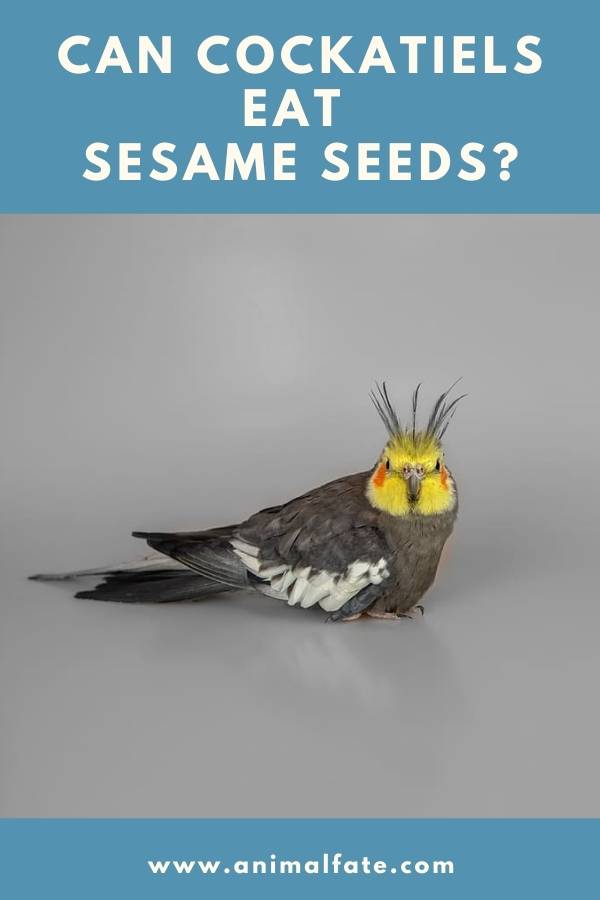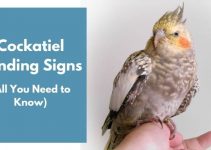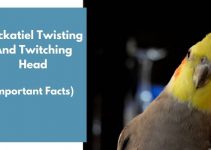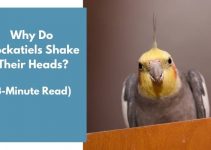Cockatiels can eat sesame seeds, yes. Sesame seeds are nutritious, making it ideal and healthy snacks for cockatiels. With its size, cockatiels would enjoy pecking on it while enjoying the benefits it offers. Still, you should limit sesame seeds as treats or snacks.
Sesame seeds are widely-known, especially in Asia, but it’s also accessible to the rest. Because of the flavor and scent, it’s not unusual to find these seeds in every household.
If you wish to feed sesame seeds to your cockatiel, you may want to know a little bit more about it first.
Let’s get into this!
Contents
Are sesame seeds bad for cockatiels?
Sesame seeds aren’t bad for cockatiels. In fact, these seeds can be quite nutritious and healthy for these birds. Although small in size, every source comes packed with a lot of nutrients.
To understand it better, take a look at these nutrition facts. According to HealthLine, an ounce (28 grams) of sesame seeds offers the following:
- 160 calories
- 3.3 grams of fiber
- 5 grams of protein
- 5.3 grams of monosaturated fat
- 6 grams of omega-6 fats
Aside from these components, sesame seeds are also rich in some minerals such as:
- Copper
- Manganese
- Magnesium
For this reason, you may have found a healthy snack or treat you can give your cockatiel.
Still, despite the nutrients it offers, these seeds should only remain as snacks or treats. Let’s find out why!
You May Also Read – Can cockatiels eat mango?
How many sesame seeds can cockatiels eat?
Sesame seeds and other seeds and snacks should only take 10% of a cockatiel’s daily food intake.
The primary reason is that while seeds are nutritious, they are not enough to support a cockatiel.
Cockatiels need a balanced diet to thrive and stay healthy. While seeds are nutritious, they don’t have what it takes to supply a cockatiel’s daily needs.
Don’t take seeds as bad, though. Cockatiels may survive in an all-seed diet. But, an all-seed diet may make them deficient in some nutrients.
They may survive, but they won’t have that shiny and vibrant feathers. Avian vets can quickly identify that a bird is under an all-seed diet because it lacks nutrients.
Accordingly, 60% of a cockatiel’s diet should consist of pellets. Although not natural food, it somehow has most of the nutrients for your pet.
The rest of the 30% should be a variety of vegetable treats. Veggies will give cockatiels the nutrients from a natural source.
Besides sesame seeds, other snacks can be other seeds such as chia, pumpkin, and sunflower. It can also be some choice fruits and even many types of nuts.
Risks of feeding your cockatiel sesame seeds
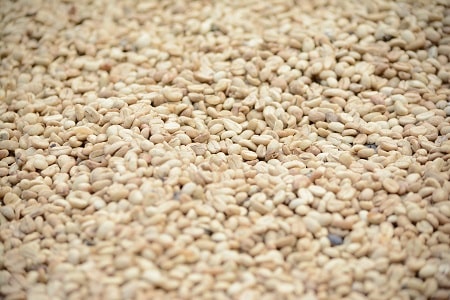
Seeds, if fed in moderation, have a lot to offer for your pet. Still, going for an all-seed diet would compromise their health.
Here are some risks of feeding your cockatiel sesame seeds:
Sesame seeds contain fat.
Sesame seeds and all other seeds contain fat. If you look back into the nutrition facts, you can see that almost half of the seeds are fats. The fats take up more than 10 grams out of 28 grams.
Such a component provides the pits enough energy to turn into a plant. Once a seed sprouts, the fat then transforms into another form of life.
Seeds have lesser calcium and vitamins.
Sesame seeds may be rich in vitamins and minerals, but it won’t suffice for a cockatiel’s daily intake.
Of course, you can add a few more grams of seeds to their snacks, but going more than that can cause harm.
All-seed diet is unhealthy and unbalanced.
Most seeds get produced fast, and so their quality usually comes very low.
Thus, it’s usually easy to tell if a bird is eating an all-seed diet. The feathers are dull, dry, and brittle.
Your pet’s health depends on the kind of diet it has. Thus, choosing an all-seed diet instead of a variety can compromise health.
For this reason, it would be best to maintain a variety and create the right diet plan for your pet.
This way, you can be confident your pet gets the nutrients it needs for each day.
You May Also Read – Can cockatiels eat walnuts?
What seeds can cockatiels eat?
Seeds are rich and fatty, and they can make a tasty treat and a diet component. Aside from sesame seeds, cockatiels can eat other pits.
These two seeds are rich in fat. Thus, if you are going to feed such, feed it in smaller amounts than sesame seeds:
- Sunflower seeds
- Safflower seeds
If your pet is large enough, you can feed the following seeds. For a cockatiel but, you may want to crush it into smaller bits.
- Pumpkin seeds
- Corn
- Thistle
- Pine Tree seeds
These seeds are small, making it more ideal for cockatiels and parrots of smaller species:
- Millet
- Hemp
- Chia Seeds
- Buckwheat
- Canary Grass
- Flax Seed
Are some seeds toxic for cockatiels?
Yes, some seeds are toxic for cockatiels. Some of these kinds contain toxic components that are harmful to cockatiels.
The usual toxic component in seeds is cyanide, and it can be lethal not only to cockatiels but also to other pets. Among the seeds that have cyanide are:
- Apple seeds
- Cherry pits
- Peach pits
- Apricot pits
- Pear seeds
- Plum seeds
For this reason, avoid feeding these seeds to cockatiels. While these fruits aren’t toxic, their seeds are, so it’s best to avoid feeding it with seeds included.
Are bananas and chicken safe for cockatiels to eat? Check it out!
Summary
Cockatiels can eat sesame seeds, and it can be a nutritious snack if appropriately fed. Sesame seeds have many benefits to offer not only for us but also for our pets. For this reason, providing it to them is key to maximizing it. Further, it can also save us from compromising our pet’s health.
As a general rule of thumb, you should only feed sesame seeds in moderation. Further, mix it along with pellets and other nutritious food.
This way, you can be confident that your cockatiel gets the nutrients it needs for each day.
Resources
HealthLine’s nutrition facts on sesame seeds
Image Credits:
- Photo by Diego Morales on Unsplash
- https://p1.pxfuel.com/preview/143/821/128/cockatiel-male-australian-bird.jpg
